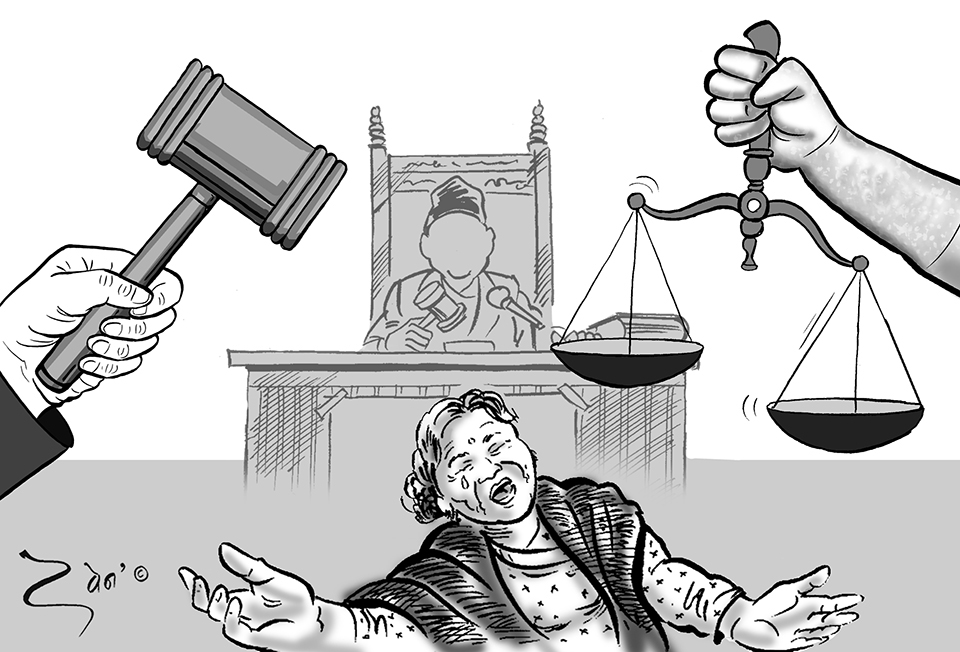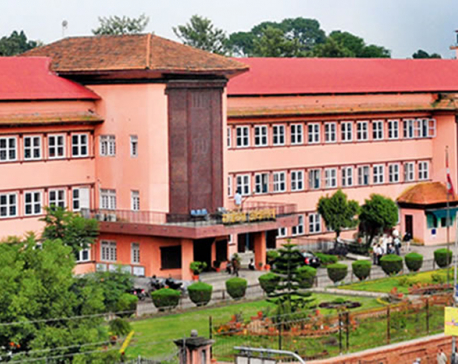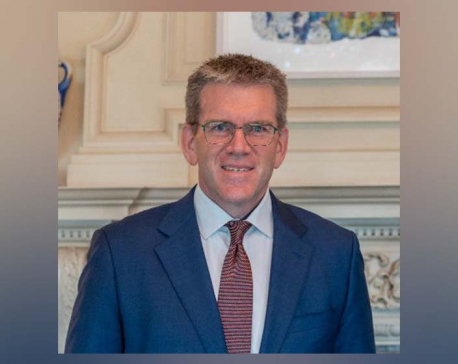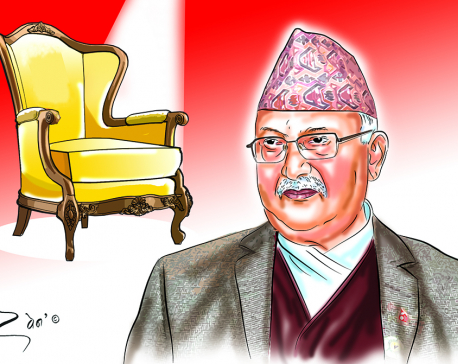
OR
Editorial
Resolve transitional justice at the earliest
Published On: January 14, 2023 07:55 AM NPT By: Republica | @RepublicaNepal

Nepal is once again in the media headlines around the world for a news that should have been a matter of the past. Amid failure and unwillingness of each successive government in the past several years, Nepal has been facing a stalled transitional justice process for almost two decades. This has drawn concerns from many stakeholders including conflict victims and the international community that supported Nepal's peace process. On Wednesday, Human Rights Watch (HRW) in its World Report 2023 expressed concern over the stalled transitional justice process. While noting some progress made in the legislations, the global human rights watchdog has concluded that several provisions included in the draft bill introduced to bring amendments to the Truth and Reconciliation Commission (TRC) and Commission of Investigation on Enforced Disappeared Persons (CIEDP) can hinder justice to the conflict victims. The bill was drafted following only brief consultations with the victims’ groups and civil society. The concerns of the HRW comes in the wake of the international community keenly interested to see Nepal’s transitional justice process moving forward to address the concerns of the victims. The Maoist conflict in Nepal ended with the rebel and the government signing a Comprehensive Peace Accord (CPA) in November, 2006 with pledges, among others, to form transitional justice bodies to deliver justice to the conflict victims. Over 16 years have already passed since the signing of the CPA. Yet, the country has yet to fully address human rights abuses that occurred during the 10-year civil war between the government and the Maoist rebels. The erstwhile government-led by Sher Bahadur Deuba in August, 2022 had tabled a bill to amend the 2014 transitional justice law, which had been struck down by the Supreme Court in 2015. The failure of successive governments to amend the law is a key reason that there has been no progress in delivering justice and accountability for conflict-era violations.
The transitional justice process, which includes both criminal prosecution and reparations for victims, has been slow and hindered by a number of obstacles. The most important obstacle, of course, is a lack of political will to address the issue. Despite the signing of a Comprehensive Peace Agreement in 2006, which included provisions for transitional justice, political leaders have been reluctant to move forward with the process. This has led to inordinate delays and a lack of progress in the delivery of justice and reparation to the victims of conflict. Another obstacle is a lack of funding for the process. The government has not allocated sufficient resources for the investigation and prosecution of human rights abuses, which has hindered the ability of the transitional justice process to move forward. The lack of funding has also hampered the ability of victims to access reparations and other forms of assistance. Another major obstacle can be seen as a lack of public support for the process. The demand of transitional justice to hold those responsible for grave human rights violations accountable should come from the wider public. This is important to make sure that similar violence does not repeat in the future. This lack of public support has made it difficult to hold those responsible for human rights abuses accountable. Lack of adequate legal framework and trained personnel to handle the complex process of transitional justice has added complexities to the process.
Transitional justice is an important process for Nepal to resolve because it addresses past human rights abuses and helps to ensure accountability for those abuses. This process can also help to promote reconciliation and healing within the community, and can prevent future human rights violations from occurring. Resolving the transitional justice process can equally help Nepal to move forward and build a more stable and peaceful society. Since Chairman Pushpa Kamal Dahal of CPN (Maoist Center), which initiated the decade-long Maoist Conflict in the country, has been recently elected as the prime minister of the country with support of almost all members of the parliament, his government should capitalize the broader support it has garnered from both sides of aisle in parliament to conclude the stalled transitional justice process. While doing so, the government must make sure that the entire process is victim-centric and that it fully takes into account the concerns of all the victims and victims’ groups.
You May Like This

SC annuls appointment of Koshi Province CM Thapa, gives seven days to form a new govt of two or more parties
KATHMANDU, July 28: The Supreme Court (SC) has revoked the appointment of Uddhav Thapa as Chief Minister of the Koshi... Read More...

Int’l community keenly interested to see Nepal’s transitional justice process moving forward: US envoy
KATHMANDU, Jan 12: The US Ambassador to Nepal Dean R Thompson has said that the international community is keenly interested... Read More...

Oli tries to woo Dahal to break ruling alliance as Deuba prepares to form a new govt
KATHMANDU, Nov 24: As the final results of the House of Representatives and provincial assembly elections are pouring in from... Read More...






Just In
- Youth attempts suicide amid police torture over Facebook comments against home minister
- Time to declare EVMs’ end
- World Malaria Day: Foreign returnees more susceptible to the vector-borne disease
- MoEST seeks EC’s help in identifying teachers linked to political parties
- 70 community and national forests affected by fire in Parbat till Wednesday
- NEPSE loses 3.24 points, while daily turnover inclines to Rs 2.36 billion
- Pak Embassy awards scholarships to 180 Nepali students
- President Paudel approves mobilization of army personnel for by-elections security












Leave A Comment